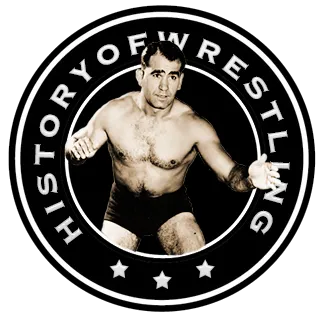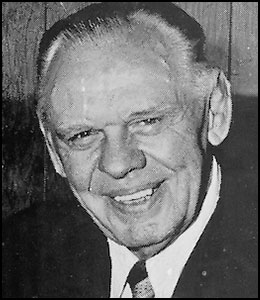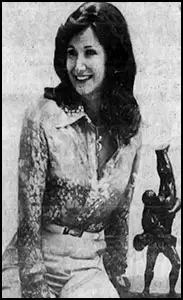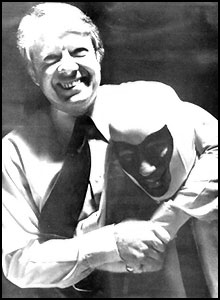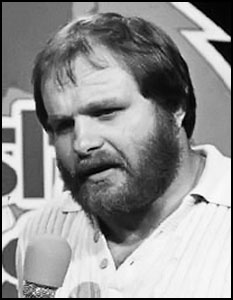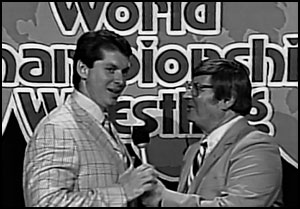by Stephen Von Slagle
Georgia Championship Wrestling/Mid South Sports (a.k.a. “Atlanta”)
OWNERS/PROMOTERS:
Paul Jones (1944-1984)
Jim Barnett (1974-1984)
Ole Anderson (1980-1984)
Jack Brisco (1974-1984)
Gerald Brisco (1974–1984)
Bill Watts (1972-1980)
Jim Oates (1980–1984)
Vincent K. McMahon (1984)
STATES & PRIMARY CITIES:
Georgia (Atlanta, Columbus, Marietta, Gainesville, Canton, Macon, Athens, Savannah, Augusta, Rome)
Pennsylvania (Johnstown, Scranton, Erie, Reading, Altoona, Harrisburg)
West Virginia (Wheeling, Bluefield, Huntington)
Tennessee (Johnson City, Knoxville, Chattanooga)
Michigan (Lansing, Dearborn, Grand Rapids)
Ohio (Cincinnati, Columbus, Dayton, Marion, Stoobenville, Canton)
MAJOR CHAMPIONSHIPS:
Georgia Heavyweight title (1964-1981)
National Heavyweight title (1980-1986)
Georgia Tag Team title (1968-1980)
National Tag Team title (1980-1986)
Georgia Television title (1969-1979)
National Television title (1979-1984)
PROMOTIONAL HISTORY:
Dating back to the 1920s, professional wrestling has enjoyed a long and rich history with the city of Atlanta. However, the story of its heyday really begins in 1944, with the first cards held by promoter Paul Jones. Jones staged his weekly cards at the Atlanta Municipal Auditorium every Friday evening beginning in 1944 until his retirement in 1974 and, under his watch, pro wrestling in the state of Georgia flourished. A respected member of the National Wrestling Alliance for the vast majority of his three decades as a promoter, his ABC Booking company was one of the most successful regional wrestling companies of the era and, not excluding the normal fluctuations in attendance that were a part of the promotional business, that success continued through to the early 1970s when ABC Booking became Mid South Sports, Inc. and Georgia Championship Wrestling was born.
In the shakeup that occurred following the death of his top star (and minority owner in ABC Booking) Ray Gunkel, Jones’ company went into an unforeseen tailspin that took some time to recover from. However, the combination of a restructured front office, a talented new booker in Jerry Jarrett (and, later, Bill Watts) and a great deal of support from the NWA enabled the Atlanta office to eventually overcome the serious challenge that was posed by Ann Gunkel’s All-South Wrestling Alliance and regain its position as the dominant promotion in the lucrative Georgia market. When Georgia Championship Wrestling’s local television carrier, WTCG Channel 17 (later renamed WTBS) was broadcast nationally via satellite beginning on December 17, 1976, it became cable TV’s first “superstation” and the NWA’s Georgia promotion was poised to become the first wrestling program with nationwide coverage since the days of the Dumont network in the 1950s. Boasting a rotating but consistently first-rate roster of talent that was now being seen by fans from coast to coast, the already popular Georgia territory quickly became the place to be in professional wrestling and its television program, hosted by the legendary Gordon Solie, was a bona fide ratings giant during the infancy of cable TV.
By 1980, Georgia mainstays like Dusty Rhodes, Mr. Wrestling II, Tommy “Wildfire” Rich, The Masked Superstar, Tony Atlas, Austin Idol, Ole Anderson, Wahoo McDaniel and many others were genuine national wrestling celebrities due to the fact that Georgia Championship Wrestling had become cable TV’s first legitimate hit show. Given the program’s nationwide reach, it was soon common to see performers who were not normally associated with Georgia to come into the territory for short stints in order to benefit from the exposure that WTBS and Georgia Championship Wrestling afforded them, men like AWA legend The Crusher, Texas’ Kevin Von Erich, Calgary’s Bret Hart, Mid Atlantic’s Ric Flair, Roddy Piper and Greg Valentine and even WWF Heavyweight champion Bob Backlund. As G.C.W.’s national popularity continued to grow and demand for the product increased, it made sense for the promotion to expand its base of operations. In addition to the cities within Georgia that made up its traditional circuit, the stars of GCW began appearing in markets that had no specific NWA affiliation and soon cities in Ohio, West Virginia, Pennsylvania, Tennessee and Michigan became part of the Georgia promotion’s touring schedule. As a result of its far-reaching television program as well as its newly expanded territory, the decision was made to rename the promotion’s major championships and the Georgia Heavyweight title became the National Heavyweight title, as did the Georgia Tag Team and TV titles. Additionally, in September of 1982, the name of the promotion’s highly-rated TV program was officially changed to World Championship Wrestling.
While still a shareholder in the company, Paul Jones was, by this point, a silent partner and the day-to-day operations of the promotion were primarily handled by the Chief Executive Officer of Mid South Sports, James E. Barnett and his booker, Ole Anderson. While Barnett and Anderson were very successful in their efforts to expand into new markets, that success came at a price and the cities within Georgia that had long been the lifeblood of the promotion soon began to suffer from a lack of attention. While the stars of World Championship Wrestling were off packing houses in states far from their home base, local fans were offered a substandard product and attendance in Georgia dwindled. The situation was further complicated by a growing rift in the working relationship between Barnett and Anderson, as well as dissatisfaction in the profit levels by shareholders Jack & Jerry Brisco and Jim Oates. What had once been a model of success began to crumble internally due to overspending, mismanagement and in-fighting. Eventually, the friction between Barnett and Anderson led to Barnett being forced out of GCW and giving up his long-held position of power within the National Wrestling Alliance. Barnett then joined Vince McMahon as the Vice President of the World Wrestling Federation, a move that would come back to haunt his former booker. Without Anderson’s knowledge, Jim Barnett, with help from the Briscos, facilitated the buyout of minority shareholders Frances Jones and Jim Oates, which allowed McMahon to acquire 51% of the company and controlling interest of the stock on April 9, 1984. Upon receiving the news that Titan Sports had purchased the promotion and its valued time slot on TBS, Ole Anderson temporarily blocked McMahon by obtaining a restraining order against Titan and he hoped that the court system would find the “forced buyout” to be unlawful.
That did not turn out to be the case and on July 11, 1984, Titan Sports officially took legal control of Georgia Championship Wrestling, Inc. and its two weekend time slots on Ted Turner’s Superstation. At 6:05 p.m. the following Saturday, July 14, 1984, WWF World Championship Wrestling made its debut on TBS, an event that was later dubbed “Black Saturday.” For his part, Ted Turner was not at all pleased with news of the takeover and he soon allocated a Saturday morning time slot for Anderson’s new Championship Wrestling from Georgia program, as well as a Sunday afternoon spot for Bill Watts’ popular Mid South Wrestling Association. Ratings for the WWF’s TBS programs ranged from mediocre to low while the handful of live events that the Federation staged in Georgia drew poorly. Within a year of McMahon’s debut on the Superstation, Jim Crockett, Jr. was able to purchase the WWF’s TBS time slots and Jim Crockett Promotions absorbed Anderson’s Championship Wrestling from Georgia group, thus establishing the entity that would eventually become WCW
